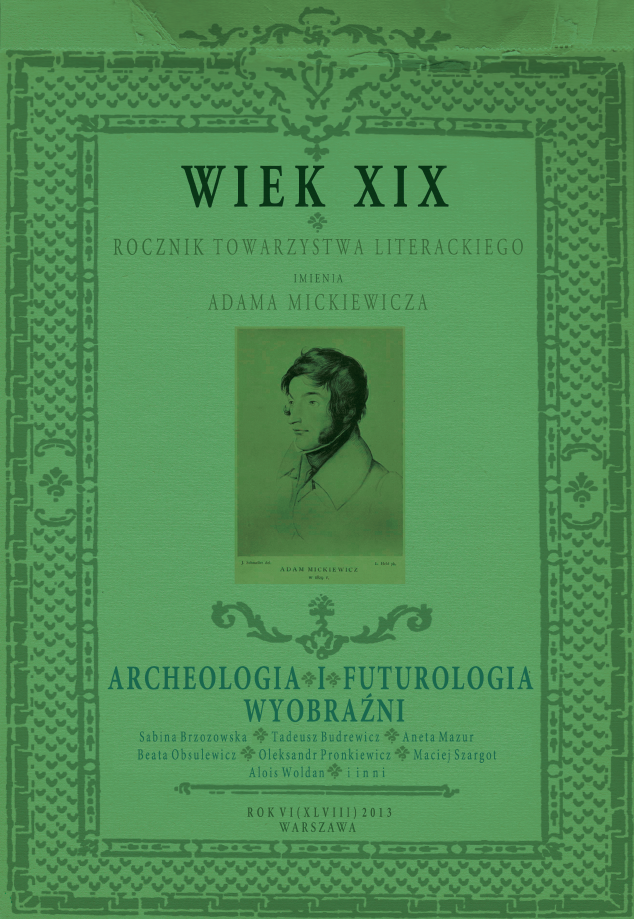Spotkanie z Obcym. Zmyślenie ograniczone w powieści „W nieznane światy” Władysława Umińskiego
Meeting with a Stranger. Restricted Fantasy in "To the Unknown Worlds" by Władysław Umiński
Author(s): Damian Włodzimierz MakuchSubject(s): Language and Literature Studies, Studies of Literature, Polish Literature
Published by: Towarzystwo Literackie im. Adama Mickiewicza
Keywords: Władysław Umiński; "W nieznane światy"; 19th-century science fiction; futurology; science fiction; fantasy; dream; inventions; positivism; modernization
Summary/Abstract: The article is an analysis of the novel "A Man Without Tomorrow" by Jan Zachariasiewicz and focuses primarily on the affinities of the text with popular literature and realistic poetics. The novel is a peculiar “treatise” on the condition of 19th century man, living in the rapidly developing world ruled by money. In the analysis of the text, the issue of narrative space, which is primarily urban, is also an important matter. Zacharasiewicz, arguing against the positivist optimism, shows in "A Man Without Tomorrow" different facets of the crisis affecting the second half of the 19th century in Central and Eastern Europe, such as political chaos and disturbance of the existing social order, and in relation to the traditional division of roles in the family and the feeling of loss in the money-based civilization.
Journal: Wiek XIX. Rocznik Towarzystwa Literackiego im. Adama Mickiewicza
- Issue Year: LXVIII/2013
- Issue No: 1
- Page Range: 205-226
- Page Count: 22
- Language: Polish

